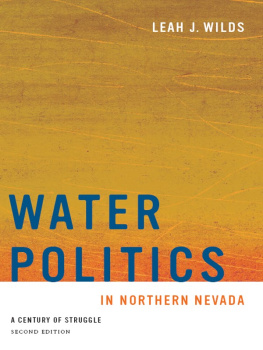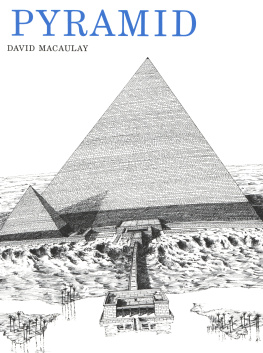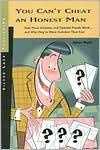PREFACE
This book is a history of an extraordinary place, Pyramid Lake, Nevada. The lake's beauty and abundant resources have for centuries attracted Indians, white ranchers, farmers, fishermen, agents of government bureaus and private businesses, and tourists of all types. Their connections to the lake and to each other provide the stories I tell in the following chapters.
The stories are fascinating and important in two ways. First, they are little-known episodes of western American history. There is only one other book about the lake in print, As Long as the River Shall Run: An Ethnohistory of Pyramid Lake Indian Reservation, by Martha C. Knack and Omer C. Stewart, a history of the Pyramid Lake Paiutes and their struggle to preserve the lake's water. My book builds on that history, adding the histories of white squatters, scientists, artists, and tourists. Second, the stories are a microcosm of political and cultural forces such as the dispossession of the Indians, racism, the expansion of irrigation agriculture, urbanization, tourism, the shift from conservation to environmentalism, and the extension of civil rights that have shaped America in the past 150 years. My focus in At Pyramid Lake is on the ways the lake has been and continues to be perceived, depicted, and managed in the context of these forces. The central question to be answered is how a place often described as mysterious, primitive, and unique became part of vast systems of water and wildlife management, experiments in social planning, economic development, and environmental protection. Some answers are found in the profiles of the many colorful characters associated with the lake. The stories of Pyramid Lake are full of wonder and paradoxes, conflict and reconciliation, spiritual quest and struggle for survival.
The title At Pyramid Lake was suggested by my poet daughter, Alexa, during a walk in the Yolo Bypass Wildlife Area. The simple two-letter preposition solved my search for a title that would convey the subject of the book clearly, but complicate it sufficiently to alert the reader to the paradoxes in my stories about the lake and its people. Primarily, at expresses the relation of presence or contact in space and time, or of direction toward, write the editors of the indispensable Webster's New International Dictionary of the English Language (2nd ed., 1934).
Presence and contact in space and time with Pyramid Lake and surroundings is the subject I explore through brief histories of the people at the lake: the Kuyuidokado, white squatters and their political allies, dude ranchers, fishermen, missionaries, scientists, poets, artists, and tourists. My sources are published accounts, manuscripts, conversations, and personal memories. I have tried to keep myself in the background, but I am part of the lake's history and I use the personal pronoun when necessary. This book is a history of and a tribute to the lake I know. A full history of the Pyramid Lake Paiutes, the Kuyuidokado, remains to be written.
I was fortunate to have lived at Pyramid Lake for a brief period of my childhood in the late 1930s and early 1940s and near the lake, in Reno, for another fifteen years, through the 1950s. My strong emotional attachment to the lake is also a legacy from my mother, Katharine Norrid Mergen, and the stories in this book are infused with her presence.
Fifty-five years ago I took a Greyhound bus from Reno to Berkeley for a meeting with a committee interviewing applicants for Woodrow Wilson Fellowships. The committee was composed of University of California professors who were bemused by my request to pursue graduate work in something called American studies, and they appeared baffled by my explanation that such an academic field would allow me to combine the study of anthropology, history, and literature. Why would you want to do that? one august committee member asked. Well, I replied, I would like to place American Indians in the context of American history. There was a collective gasp, and my interlocutor sternly replied, That's not possible. There were murmurs of assent.
Despite this inauspicious exchange, I received the fellowship and began my meandering path through American labor history, the material culture of play and recreation, and environmental history. The trail has led back to my impulsive response to an unanticipated question. This book is partially an attempt to show the interview committee they were ill-informed and to thank them for planting an idea that kept driving me to prove them wrong.
In a book dependent on primary sources, print and manuscript, some readers may question the absence of footnotes. I wrote At Pyramid Lake for both scholars and the literate public. Having written several books in which footnotes attach themselves to almost every sentence like ticks in a dog's ear, I wanted to give the reader unencumbered pages. I have tried in every instance of quoted or paraphrased material to indicate the source in the text. Readers should easily be able to find the original source by consulting the references. If not, e-mail me: .
My deepest thanks goes to the Pyramid Lake Paiute Tribe, three of whose members contributed to this book in vital ways: Ben Aleck, collections manager, Pyramid Lake Paiute Tribe Museum and Visitor Center; Ralph Burns, storyteller, Pyramid Lake Paiute Tribe Museum and Visitor Center; and Michelle McCauley, who has been active in promoting Paiute culture and language, especially among young people.
Second only to the oral knowledge preserved by tribal members are the written records concerning Pyramid Lake cataloged and maintained by the staff of the Special Collections of the University of Nevada, Reno, Library. Two archivists who helped me immeasurably over several summers of research are Donnelyn Curtis, head of Special Collections, and Jacquelyn Sundstrand, Manuscripts and Archives librarian. Without the interest and encouragement of Donnie and Jacque, this book would not have been possible.
Three other manuscript and archival collections were indispensable, and I thank the archivists and staff of the Nevada State Historical Society and the Harry Ransom Center, University of Texas at Austin, for their assistance. The third repository of essential records turned out to be a closet in the offices of the Environment and Natural Resources Division of the US Department of Justice in Sacramento, California, where Stephen Macfarlane, senior trial attorney, invited me to examine them. These documents were copies of federal records compiled in the 1970s in an unsuccessful effort to reopen the Orr Ditch Decree to secure a federal reserved water right for Pyramid Lake. I believe these were some of the materials used by Martha C. Knack and Omer C. Stewart in writing







